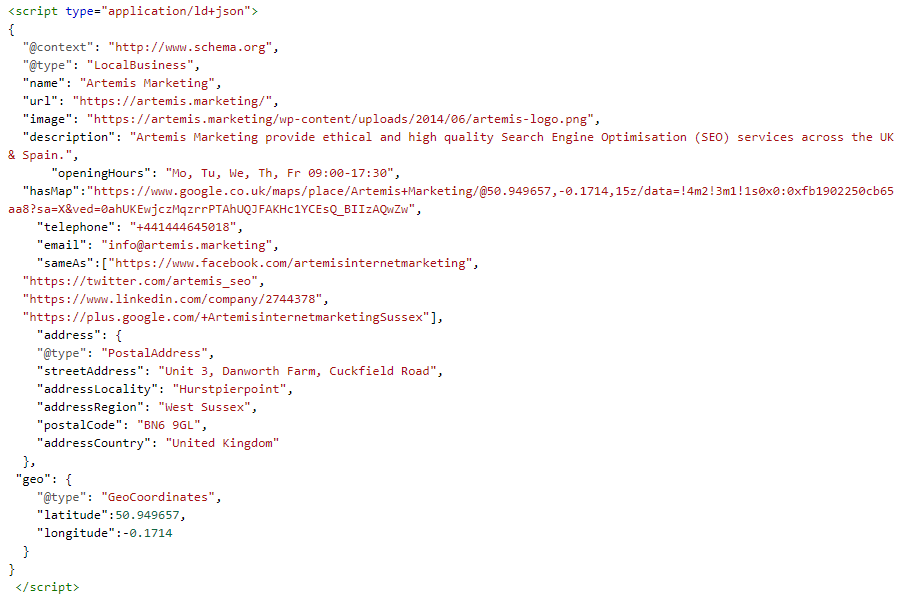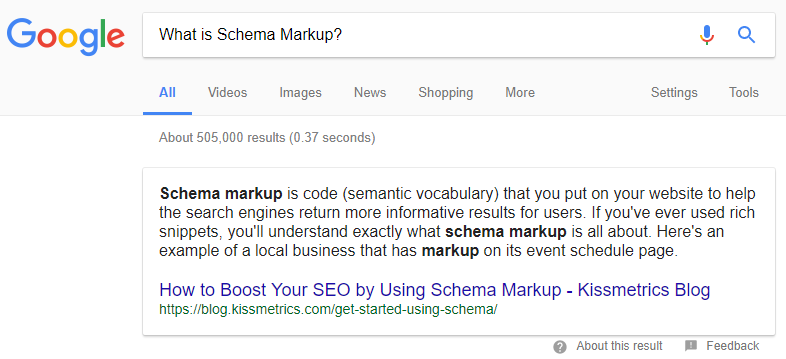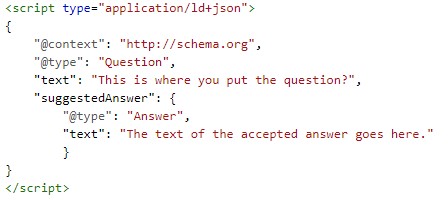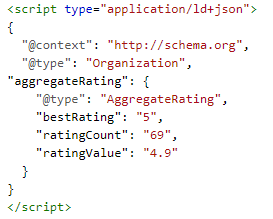3 Schema Markup Tricks You’ll Thank Us For Later
Have a website? You should apply Schema Markup.
Why? schema.org is a powerful optimisation technique which will help search engines to understand what the data on your website actually means. It applies structure to your data and content, allowing search engines to display featured (or rich) snippets.
Working with local businesses, we’ve tested quite a few Schema Markup features and want to share three of our favourite schema tricks.
Organization/LocalBusiness
If you visit schema.org/LocalBusiness you’ll find a number of properties you could apply within your Schema script. You can get quite specific with the type of LocalBusiness you have with a range of business categories to choose from. Here’s a small selection: AutomotiveBusiness, EmploymentAgency, FinancialService, FoodEstablishment, HealthAndBeautyBusiness, HomeAndConstructionBusiness.
You can include a vast range of information about your business, from your logo, opening hours, to awards and even vatID if you really wanted to. To get you started, we’ve provided some basic Schema Markup we’ve tried and tested – You’re welcome!

QAPage
FAQ’s provide valuable content that search engines want to understand, whereby they can deliver informative answers to users. Google frequently delivers rich snippets to user’s queries with a helping hand from Schema Markup.
If you have an answer to a question that you want to appear as a rich snippet, just like the one below, you’ll need to apply Schema.

You might come across a few different ways to Markup your FAQ’s, but here’s what we suggest to keep things simple:
Microdata

JSON-LD

AggregateRating

Ever wondered how to get stars next to your listing on Google’s search? You’ve guessed it; Schema. This could possibly be our favourite use of Schema Markup, but there’s no guarantee it’s going to display… Not ideal.
If you want a shot at displaying your ratings you’ll have to follow Google’s Guidelines including:
- Refer clearly to a specific product or service
- Reviews should be readily available to users
- Ratings should be used with a 5-point scale
- Reviews must be sourced directly from users, not from other sites
As always, there are a number of properties you can display within your Markup, which can be found on schema.org/AggregateRating. In its simplest form, you should include:

How to apply Schema
We recommend two options:
- Applying the script directly to your webpage using Microdata to Markup content you’ve displayed.
- Using Tag Manager with JSON-LD script.
You’ll find many examples of the two scripts on the schema.org website, luckily there are also many free tools which will help you to write the code.
After you apply the code make sure you check your work with Google’s Structured Data Testing Tool!
Getting the hang of Schema Markup
Like most code, there’s a bit of getting used to it required. The wrong placement of a comma or choice of property type will result in an error. Once you get the hang of it, we know you’ll thank us later. After all, there’s nothing more exciting for us SEO’s and website owners than seeing improvements in your search engine ranking performance or content appearing as rich snippets.

